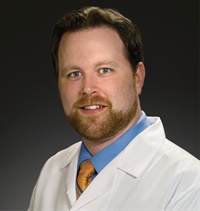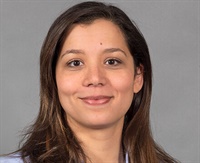Total Credits: 2 including 2 AOA Category 1-A Credit(s), 1 Opioid Credit
Culinary Medicine
Most al clinical guidelines for common conditions such as diabetes, hypertension, coronary artery disease, etc., include lifestyle modification as the first line recommendation, however, we are hard pressed for time and, frankly, lack of a good knowledge base to educate patients other than the age-old adage of "eat less, move more."
This discussion seeks to shed some light on the culinary landscape outline that patients flock to as an alternative, often leading them astray into further detriment to their health, and shows how you can incorporate some of this into your own practice to teach sustainable and evidence-based weight loss education for patients from a diet & exercise standpoint.
Upon completion of this program, participants will be able to:
Double Trouble: The Opioid Epidemic Meets COVID-19 (OPIOID)
The opioid epidemic has posed a significant public health challenge in the United States for decades, with the COVID-19 pandemic further complicating the crisis. Despite extensive efforts to reduce opioid overdose deaths, the death toll continues to rise. In this presentation, we aim to explore the impact of the pandemic on the opioid epidemic, including the disruption of access to prevention, treatment, and harm reduction services, the disproportionate impact on vulnerable populations, and the changes in drug market dynamics resulting in riskier drug use behaviors. The purpose of this presentation is to identify the urgent need for effective prevention and treatment strategies that address the complex social, economic, and behavioral factors driving the opioid epidemic.
Upon completion of this program, participants will be able to:
Statement of Accreditation
The Texas Osteopathic Medical Association (TOMA) is accredited by the American Osteopathic Association to provide osteopathic continuing medical education for physicians. TOMA designates is program for a maximum of 2 AOA Category 1-A credits and will report CME credits commensurate with the extent of the physician’s participation in this activity.
Grievance Policy
All grievances may be directed to TOMA's Executive Director at toma@txosteo.org. All grievances will receive an initial response within 30 days of receipt. If the participant does not receive a satisfactory response, they can submit a complaint to the Bureau of Osteopathic Education of the AOA at 142 East Ontario Street, Chicago, IL 60611.
| Leggoe_Culinary Medicine handout (74.70 MB) | Available after Purchase | ||
| Soliman_handout_am23_UPDATED.pdf (6.6 MB) | Available after Purchase | ||

Scott Leggoe, DO attended medical school at Edward Via Virginia College of Osteopathic Medicine in Blackburg, VA—graduating in 2009. He completed a residency in Family Medicine and OMT in the Philadelphia region and, following an additional training year, in Neuromusculoskeletal Medicine and Osteopathic Manipulative Medicine in Orlando, FL.
Afterwards, Dr. Leggoe has been fairly mobile as his wife is an osteopathic physician in the USAF. He has been involved with medical schools, residency education, program directorship, family practice, OMM, urgent care medicine, and information technology, among other things.
His medical interests are musculoskeletal medicine and incorporation of OMT into everyday practice. He also enjoys culinary medicine.
His personal interests are family, cooking, traveling and teaching.
Dr. Leggoe discloses that he has no relevant financial relationships with any organization producing, marketing, reselling, or distributing health care goods or services consumed by, or used on, patients relative to the content of this presentation.

Dr. Soliman is an pharmacist, researcher and educator, currently serving as an Assistant Professor of Pharmacology at Sam Houston State University's College of Osteopathic Medicine (SHSU-COM).
She obtained her doctorate degree in Clinical and Experimental Therapeutics from the College of Pharmacy, University of Georgia. Her work focused on the neurovascular unit, with the goal of repurposing FDA- approved medications for stroke therapy. Her postdoctoral research at Yale School of Medicine in New Haven, Connecticut focused on studying the role of pericytes in intraventricular hemorrhage of prematurity.
Dr. Soliman is a passionate advocate for promoting safe medication practices in rural and underserved areas, which has driven her to investigate healthcare disparities related to drug abuse, misuse, and addiction. Her commitment to collaboration, innovation, and research excellence at SHSU-COM is reflected in her work with a team of experts from diverse fields, including public health, statistics, healthcare, and sociology. Together, they are serving the mission of SHSU-COM, dedicated to educating the next generation of primary care physicians to promote health in Texas and beyond.
Dr. Soliman discloses that she has no relevant financial relationships with any organization producing, marketing, reselling, or distributing health care goods or services consumed by, or used on, patients relative to the content of this presentation.
| 5 |
|
| 4 |
|
| 3 |
|
| 2 |
|
| 1 |
|